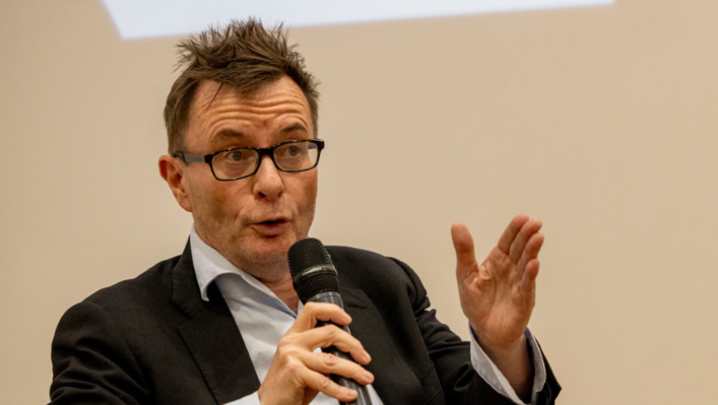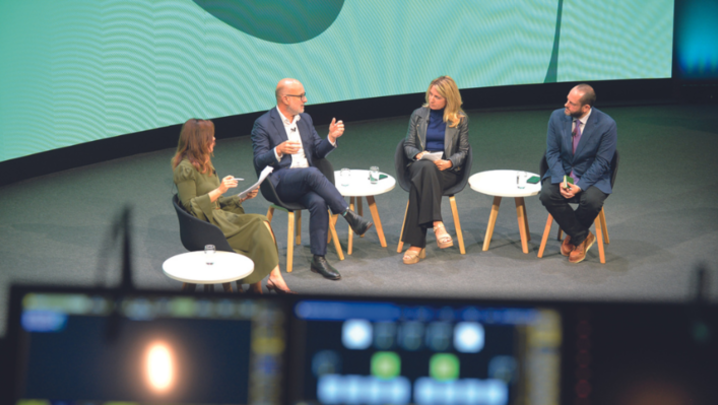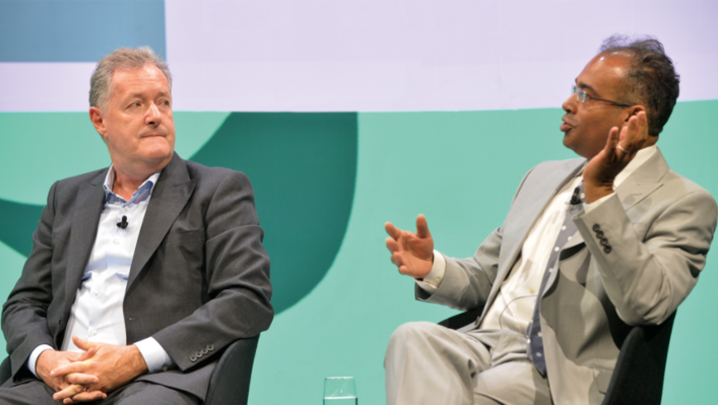TV news must provide fearless and robust coverage in the coming general election, insists John Ryley
"Just f***ing start talking”, shouted the legendary ITN studio director Diana Edwards-Jones into the earpiece of a reticent reporter at a constituency count more than 40 years ago as she commanded general election night coverage with great panache.
Election nights haven’t changed much since because the format works and millions watch. Have a look at BBC Parliament’s reruns of old election nights from the 1960s and you will see very few differences: a focus on the live results; live pictures from across the country as votes are counted; live interviews with key politicians; a craggy psephologist explaining what the incoming results signify about which party is on track to win a majority in the House of Commons; and, on most occasions, a fanfare at the winning moment.
Sure, the psephology has been transformed. The number crunching has come a long way but, at heart, it’s the same approach, with charts and graphics deployed using the latest technology to achieve maximum dazzlement. What you won’t see is a 21st-century Robin Day smoking a cigar on the set.
Election nights get seriously detailed attention from TV producers and their bosses months in advance. But – and it is a big but – it is the TV, digital and audio producers left to work on the long weeks of an election campaign who need to realise they have a golden opportunity to better equip audiences to make decisions when they vote in a world awash with mistruths, disinformation and blatant lies.
In recent times, broadcast news organisations have tried to spend as little as possible on election campaigns. The financial pressures are even harder this year, given the huge cost of reporting the wars in Ukraine and Gaza, along with a defining US general election.
But democracy depends on establishing the truth. Journalists need to assess the evidence to determine the facts and to accurately report and analyse what the political parties and senior politicians are advocating to make society better.
Sky News has already launched its “Target towns” project, centered on the bellwether seat of Great Grimsby and Cleethorpes, and GB News is calling itself “Britain’s election channel”, though no election date has been set. It is doing well in the ratings. In the week beginning 4 March, GB News beat Sky News five days out of seven, including on budget day, in terms of share according to Barb. Expect GB News to aim to hit hard on topics such as taxes, health, immigration, education, housing and transport.
The recent comments at the Philip Geddes Memorial Trust lecture by Melanie Dawes, CEO of Ofcom, that the BBC is regulated to a higher standard on impartiality than GB News because the state broadcaster has a bigger audience may encourage the upstart to push the boundaries of impartiality even further than it has already. Boris Johnson has signed up for it, though he may not show.
But GB News’s high command at its Paddington Basin newsroom needs to be careful that its plugging of Reform UK’s policies and top people – the party’s Chair, Honorary Secretary and first and only MP are all GB News presenters – together with largely unchallenged criticism of the Conservatives, Labour and Liberal Democrats doesn’t blow up in its face.
Winning the trust of voters will be the critical principle on which the election in 2024 will be fought. Here are five ways to improve television’s coverage of the campaign to help voters understand the issues and make better decisions about how they vote.
The grid
Thirty years ago, broadcasters would run a grid system during the campaign, and designate set days during the campaign when they would look in detail at specific areas of policy. For example, they might compare the two main parties’ plans and policies to grow the UK’s stagnant economy.
Conservative and Labour are evasive at the moment. Reform of public services is critical, but how different are the plans of Labour and the Conservatives? Will Labour borrow more or tax more? The grid’s structured approach might include an interview with a relevant minister and their shadow.
The grid should be reintroduced by broadcasters in 2024 to examine closely the key areas of the parties’ manifestos.
Of course, there will be moments of editorial tension between this approach and the spills and thrills of an election campaign.
Remember the day in May 2001 when outgoing home secretary Jack Straw was slow handclapped by the Police Federation, postmistress Sharon Storer squared up to Tony Blair over her husband’s cancer treatment on the NHS and John Prescott punched Craig Evans, a farm worker, with a left jab. All three moments were filmed on video. Twenty-three years ago a news producer’s nirvana, but now moments largely forgotten.
Interviews
Push hard for set-piece interviews with the big decision-takers and give them the airtime and prominence they deserve. Prime Ministers Blair, Thatcher, Heath and Wilson all submitted themselves to being questioned on prime-time TV. They saw it as part of the job to try to explain their position.
It is the journalists’ job to hold politicians to account, to question those in authority rigorously. Interviews with top politicians matter.
As the BBC’s David Dimbleby put it at the start of the 1987 election, “You’ve got somewhere a revealing moment when the viewer sees something unexpected – a train of thought, a reason for policy, the gut instinct that lies behind it, an attitude to society”. The interviewer should prepare hard, question hard and listen hard – the voters expect it.
Debates
There is a vital need for head-to-head leadership debates during the 2024 election campaign. Broadcasters need to start working together to hold debates between the two leaders most likely to be the next prime minister.
Voters need to see the Prime Minister and Leader of the Opposition debate the big issues that face the country at election time. Hold just one debate to avoid more debates “sucking the oxygen out of the campaign”, as the former Conservative leader David Cameron put it. There is no need for the leader of the third-largest party to participate.
The electoral performance of the Liberal Democrats over the past 11 years does not justify their leader, Ed Davey, taking part. Expect GB News to try to take a lead on this as both the Prime Minister and the Leader of the Opposition will want to get in front of undecided voters in the “red wall” seats.
Artificial intelligence
AI makes it easier for politicians to mislead the electorate but also offers journalists a golden opportunity for evidence-based journalism compiled at speed. This critical tool will allow journalists to rapidly call out politicians’ lies.
AI would have swiftly spotted that Joe Biden, running for the Democratic nomination in 1987, had parroted some of Neil Kinnock’s campaign phrases without crediting the Labour leader. Talk to computer scientists for advice.
The opinion polls
Don’t fixate on the opinion polls during the campaign. They skew the narrative. In 2015, this obsession with the polls suggested the most likely outcome would be a hung parliament. Journalists wrongly focused on whether Labour would form a coalition with the SNP, rather than examine what would happen if the Conservatives, having won an overall majority, would stick to their manifesto pledge to hold an in/out referendum on EU membership. A big miss. “The only poll that matters”, Margaret Thatcher used to say, “is the one on election day”. She got that right.
John Ryley is a former editor of Sky News.





